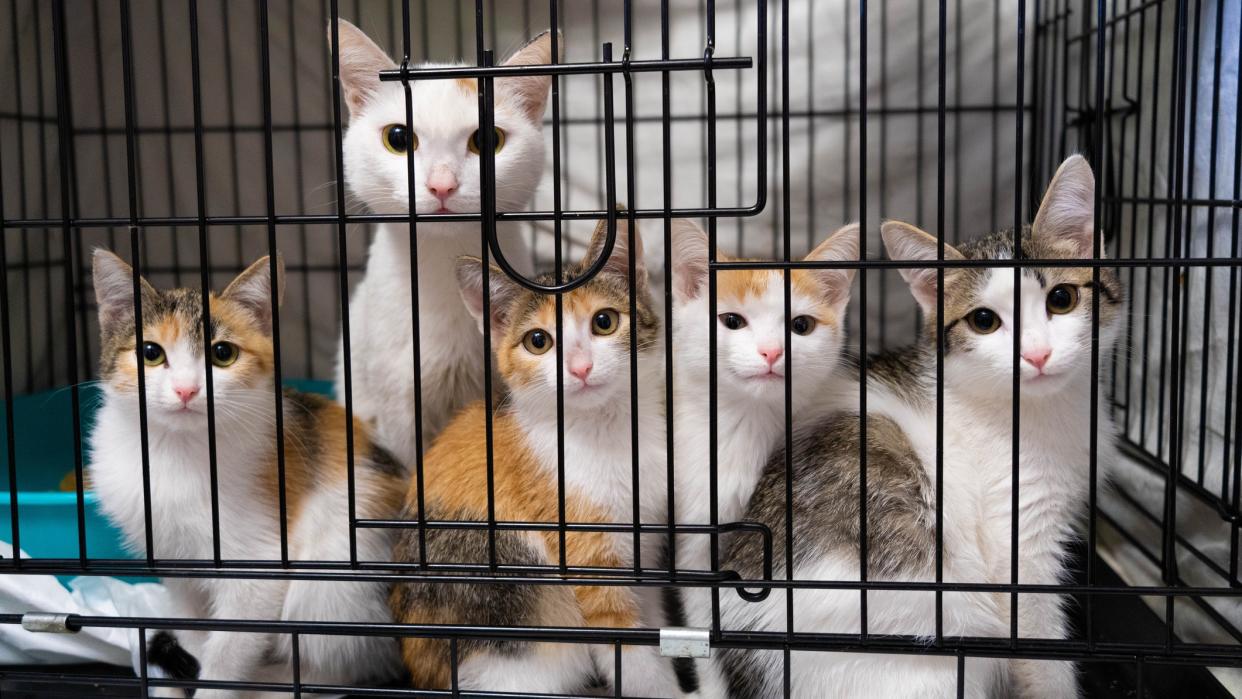Thinking of adopting a kitten? We asked a vet and a real owner what to expect

If you’re thinking of adopting a kitten, then you’re not only doing a young cat a great favor, you’re also helping yourself. Owning a cat is great for your mental health and overall wellbeing and, by adopting, you will be among the owners saving many lives each year.
Adoption is a noble thing to do. And while it does come with some costs – not least the initial spend on the best kitten food – it can actually save you money, since most cats will have had their vaccines and be spayed or neutered. One thing’s for sure, whether you’re a first-time pet owner or a certified crazy cat-lover, adoption is a great way to go.
1. Be prepared for the costs of caring for a new kitten
The first cost you will face is the adoption fee but your investment won’t end there. Owning a pet is a lifelong commitment and the costs of caring for your new pet can be high. On average, the ASPCA estimates that owning a cat costs about $1,904 in the first year. That includes the cost of the best kitten food as well as the best pet insurance, a license, grooming supplies and more. “Remember that a cat is a 15+ year commitment, and you’ll need to be financially prepared to provide care throughout your cat’s life,” says Dr Racine. If you can’t afford pet insurance, at least start a savings account for emergency use.
2. Get the essentials for your adopted kitten in advance
Some of the costs will come into play before you even get your kitten home. After all, you can’t just bring your pet into your house and not have the essentials in place. At the minimum, you’ll need the best cat food bowl, the best self-cleaning cat litter boxes, the best kitten toys, and the best cat scratching posts. You will also need to prepare a room. “It’s best to keep your kitten confined to a small, quiet room for at least the first few days to give it time to settle in,” Dr Racine says. “Set this room up well before your kitten arrives to minimize changes and shuffling that might otherwise frighten it.”
3. Provide plenty of socialization and enrichment
Socialization and training for your new kitten are essential to ensure you avoid common kitten behavior problems. “The critical period for socialization in kittens occurs from about two to eight weeks of age,” says Dr Racine. “During this time, your kitten is most amenable to learning from new experiences but your kitten is also very susceptible to developing fears as a result of negative experiences.”
To ensure your kitten enjoys rewarding experiences during this critical period and beyond, look at the best ways to train a cat which typically involves positive reinforcement. “Felines of all ages also need mental stimulation and environmental enrichment to ward off cat boredom, particularly if they’re being kept indoors. Without adequate environmental enrichment, cats may become overweight, anxious, or even destructive,” Dr Racine says.

4. Introduce your new kitten to other pets and family members gradually
If you have other pets you must introduce your adopted kitten gradually. “A new family member may seem threatening to your existing pets, particularly if they’re not used to interacting with animals outside of your household. Similarly, it can be scary for your new kitten to come face to face with other animals right after arriving in a brand new environment,” Dr Racine says.
She advises working through these steps:
Keep your new kitten isolated to one area of the house, such as a small bedroom, for the first few days after adoption, to allow it some time to settle in.
After a few days, start swapping places: allow your kitten to explore the house while your other pets are confined to the kitten’s room, safely exploring each other’s scents.
Feed your pets on either side of a closed door, so that they learn to associate each other with positive experiences.
Real cat owner Megan fully understands the need for gradual introductions. 'We were surprised at how he [the adopted cat] didn't get along with our other cat at all,” she said. “He was also more confident/brave than we expected, considering our other cat was very large in comparison. We could have been more prepared with learning how to introduce cats to each other'.
5. Don’t forget about healthcare and regular check-ups with your veterinarian
Adopted kittens are often spayed or neutered and they’ll likely be up-to-date with vaccines. But don’t be complacent and make sure this is the case.
“Kittens need regular check-ups with their veterinarian throughout their first six months of life,” Dr Racine says. “Your kitten will also need a series of vaccinations to help prevent infectious disease, and your veterinarian may recommend some routine health testing, such as checking a fecal sample for parasites.”
Be sure to also ask your vet about other preventive health measures, such as flea and tick control, deworming, and keeping your cat indoors.
Give your new fur friend everything they need in their first year of life to grow up big and strong with our top kitten care tips that will ensure they stay happy and healthy.
